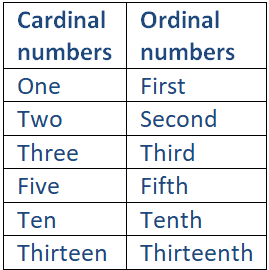

Grammar


Tenses


Present

Present Simple

Present Continuous

Present Perfect

Present Perfect Continuous


Past

Past Simple

Past Continuous

Past Perfect

Past Perfect Continuous


Future

Future Simple

Future Continuous

Future Perfect

Future Perfect Continuous


Parts Of Speech


Nouns

Countable and uncountable nouns

Verbal nouns

Singular and Plural nouns

Proper nouns

Nouns gender

Nouns definition

Concrete nouns

Abstract nouns

Common nouns

Collective nouns

Definition Of Nouns

Animate and Inanimate nouns

Nouns


Verbs

Stative and dynamic verbs

Finite and nonfinite verbs

To be verbs

Transitive and intransitive verbs

Auxiliary verbs

Modal verbs

Regular and irregular verbs

Action verbs

Verbs


Adverbs

Relative adverbs

Interrogative adverbs

Adverbs of time

Adverbs of place

Adverbs of reason

Adverbs of quantity

Adverbs of manner

Adverbs of frequency

Adverbs of affirmation

Adverbs


Adjectives

Quantitative adjective

Proper adjective

Possessive adjective

Numeral adjective

Interrogative adjective

Distributive adjective

Descriptive adjective

Demonstrative adjective


Pronouns

Subject pronoun

Relative pronoun

Reflexive pronoun

Reciprocal pronoun

Possessive pronoun

Personal pronoun

Interrogative pronoun

Indefinite pronoun

Emphatic pronoun

Distributive pronoun

Demonstrative pronoun

Pronouns


Pre Position


Preposition by function

Time preposition

Reason preposition

Possession preposition

Place preposition

Phrases preposition

Origin preposition

Measure preposition

Direction preposition

Contrast preposition

Agent preposition


Preposition by construction

Simple preposition

Phrase preposition

Double preposition

Compound preposition

prepositions


Conjunctions

Subordinating conjunction

Correlative conjunction

Coordinating conjunction

Conjunctive adverbs

conjunctions


Interjections

Express calling interjection

Phrases

Sentences

Clauses

Part of Speech


Grammar Rules

Passive and Active

Preference

Requests and offers

wishes

Be used to

Some and any

Could have done

Describing people

Giving advices

Possession

Comparative and superlative

Giving Reason

Making Suggestions

Apologizing

Forming questions

Since and for

Directions

Obligation

Adverbials

invitation

Articles

Imaginary condition

Zero conditional

First conditional

Second conditional

Third conditional

Reported speech

Demonstratives

Determiners

Direct and Indirect speech


Linguistics

Phonetics

Phonology

Linguistics fields

Syntax

Morphology

Semantics

pragmatics

History

Writing

Grammar

Phonetics and Phonology

Semiotics


Reading Comprehension

Elementary

Intermediate

Advanced


Teaching Methods

Teaching Strategies

Assessment
Numeral Adjective
المؤلف:
EDUCATIONTOPIA.NET
المصدر:
...
الجزء والصفحة:
...
14-5-2021
1543
Numeral Adjectives
Adjectives are those words which describe nouns or pronouns. Numeral Adjectives also known as Adjectives of numbers are one among seven types of Adjectives. Numeral Adjectives are those adjectives which are used to denote the number of nouns or the order in which they stand. They are also commonly called Adjectives of Number.
In simpler terms we can say that Adjective of numbers tell us the number of people or things and maintain clarity by giving exact information.
Examples of Numeral Adjective and Their Usage
One, two, five, ten, first, second, third, tenth, twelfth, last, all, some, few, each, most, many, no, several are common examples of numeral adjectives.
Read the given paragraph and understand the use of Numeral Adjectives.
We sold many mangoes today. Each mango was priced 50 cents. I along with my few friends collected mangoes from orchard and put them into three baskets. Then, we carried the baskets to the market. There we waited one hour for the customers. After customers arrived two of my friends started praising mangoes. Hearing the praises of mangoes customers started buying. All of us were happy at the end of the day.
Many, each, few, three, one, two, and all are numeral adjectives in the above given paragraphs. Therefore we can deduce that Numeral Adjectives deal with numbers of nouns and give readers/listeners clear idea of the nouns.
Numeral Adjectives can be divided into three types. They are:
1-Definite Numeral Adjective
2-Indefinite Numeral Adjective
3-Distributive Numeral Adjective
Definite Numeral Adjectives
Definite Numeral Adjectives are the set of cardinal and ordinal numbers. The word definite itself tells us that these adjectives tell us the exact number of people or things. Definite Numeral Adjectives are:

Indefinite Numeral
AdjectiveExamples:
Michelle is the second girl in our class
There are eight oranges in the bowl.
He is going two sell his two cars.
Indefinite numeral Adjectives unlike Definite Numeral Adjectives only give tentative numeral idea of nouns. They do not give us exact number. Indefinite Numeral Adjectives are:
Few, all, no, several, some, many, most
Examples:
There are few bottles of juice in the fridge.
He has sold all the books.
Several men came looking for you.
Indefinite Numerals can also be used as Adjectives of Quantity as both have same set of words.
Distributive Numeral Adjective
Distributive Numeral Adjectives are same as Distributive Adjectives. Distributive Numeral Adjectives denote singular number of noun among many. Distributive Numeral Adjectives are always followed by a singular noun and a verb.
Distributive Numeral Adjectives are:
Each, every, either, neither
Examples:
Everything he said is true.
Each student is responsible for littering classroom.
Either of the ways is correct.
Be careful, If there is the word 'of' immediately after the distributive numeral adjective like in the above sentence, we have to use plural noun instead.
Distributive Numeral Adjective can also be used as Distributive Adjectives as they both have same set of words.
 الاكثر قراءة في Numeral adjective
الاكثر قراءة في Numeral adjective
 اخر الاخبار
اخر الاخبار
اخبار العتبة العباسية المقدسة

الآخبار الصحية















 قسم الشؤون الفكرية يصدر كتاباً يوثق تاريخ السدانة في العتبة العباسية المقدسة
قسم الشؤون الفكرية يصدر كتاباً يوثق تاريخ السدانة في العتبة العباسية المقدسة "المهمة".. إصدار قصصي يوثّق القصص الفائزة في مسابقة فتوى الدفاع المقدسة للقصة القصيرة
"المهمة".. إصدار قصصي يوثّق القصص الفائزة في مسابقة فتوى الدفاع المقدسة للقصة القصيرة (نوافذ).. إصدار أدبي يوثق القصص الفائزة في مسابقة الإمام العسكري (عليه السلام)
(نوافذ).. إصدار أدبي يوثق القصص الفائزة في مسابقة الإمام العسكري (عليه السلام)


















